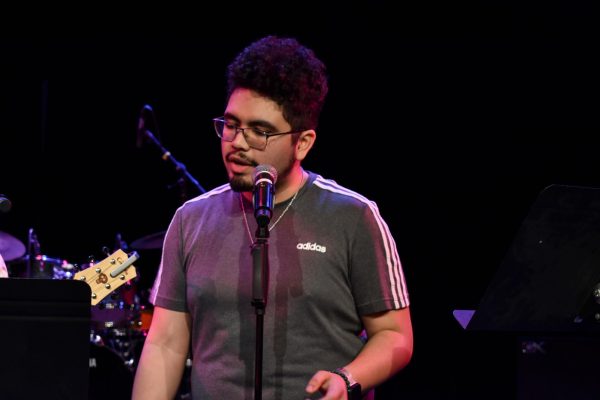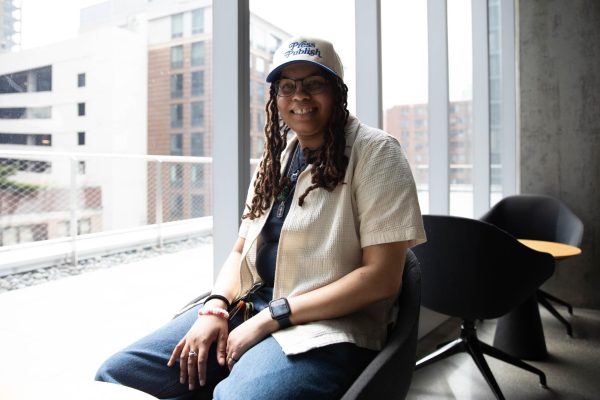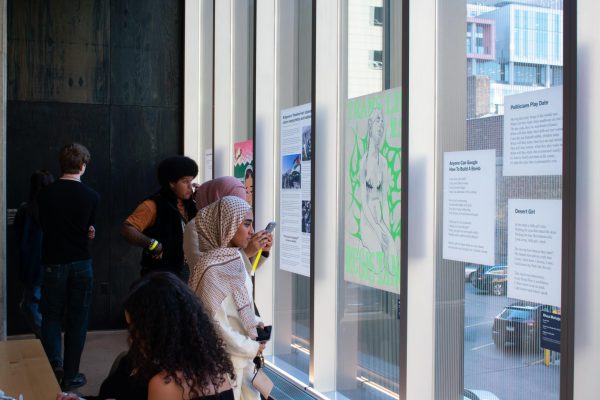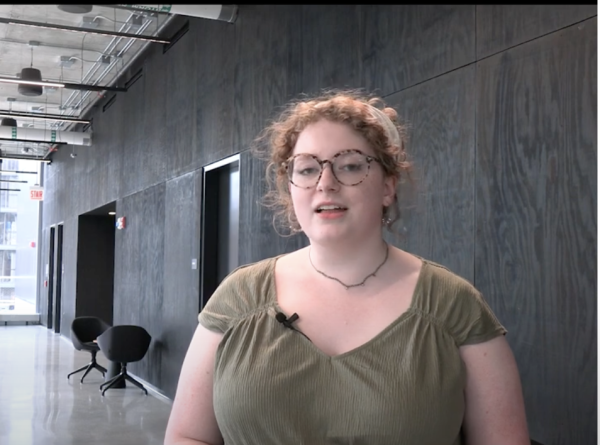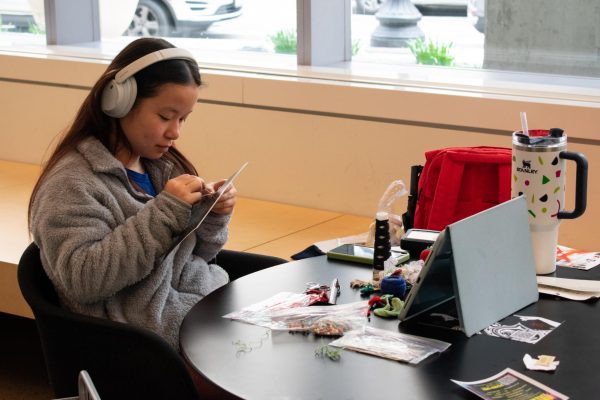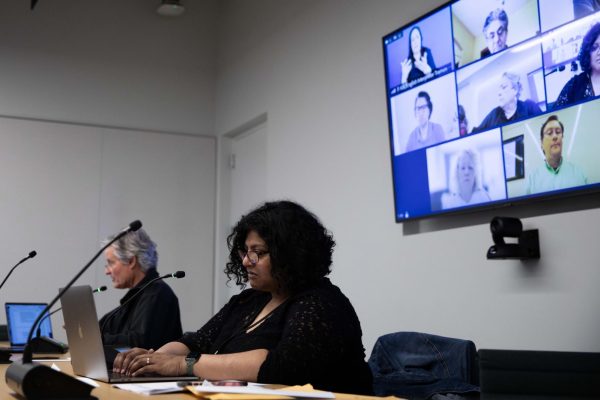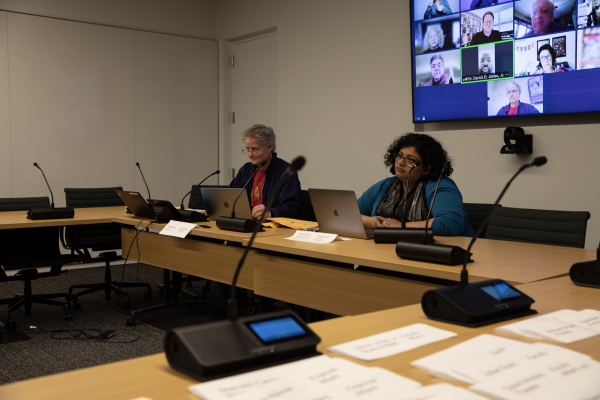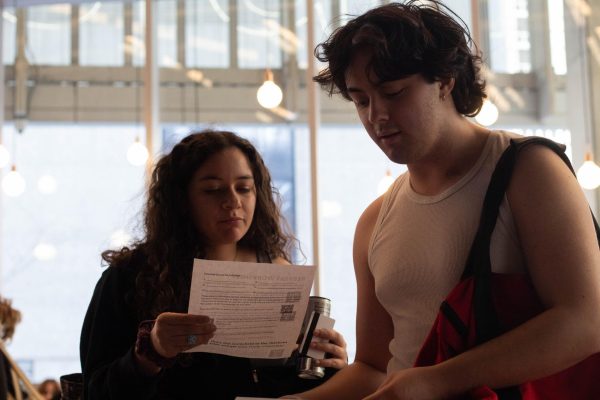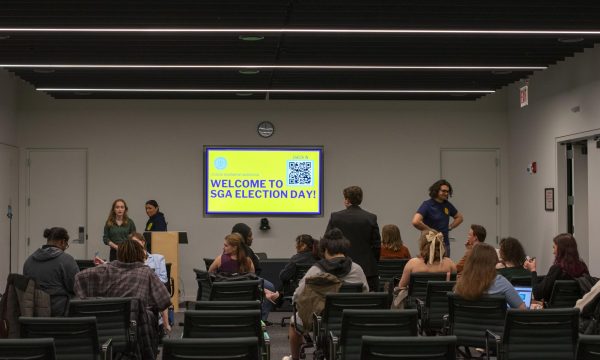President Carter leads Columbia into 2012
October 13, 2008
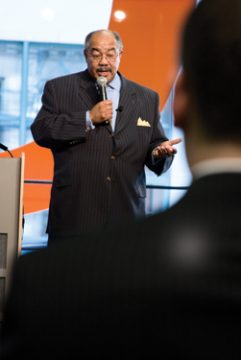 Warrick L. Carter, the president of Columbia, agreed to a two-year extension on his 2010 contract at the board of trustees meeting on Oct. 2.
Warrick L. Carter, the president of Columbia, agreed to a two-year extension on his 2010 contract at the board of trustees meeting on Oct. 2.
Carter has been with the college since 2000 and under his leadership, the college has not only increased its enrollment numbers but also has become a more student-centered campus, senior officials said. Under his administration, the college has also seen an increase of donations in an effort to keep tuition low and affordable for students, said Micki Leventhal, Columbia’s media relations director. Steve Kapelke, senior vice president and provost, agreed.
“We want to find ways to make college, both here and across the United States, more affordable for students,” he said. “We want to find ways to provide more scholarship dollars to students, and that can only be done through increased levels of fundraising.”
Carter is one of the highest paid college presidents in Illinois, according to research by the The Chronicle of Higher Education. Columbia’s 2006 tax forms showed Carter making approximately $615,000 in wages and benefits for school year 2005-2006.
Despite praise from the college, students seem to be unaware of either who Carter is or what his job entails.
Once it was explained what the chief job of the president is, students like Liz Nerat, senior fiction writing major, said in order to keep college affordable, Carter could direct Columbia to spend less money on things the college doesn’t need.
She said the school should “focus less on the aesthetics” of the campus to save money and keep tuition down.
“We go to an art school,” Nerat said. “The students can make the campus look beautiful. It would also give us a chance to showcase our work other than in exhibits. They could make it into a class.”
Tim Nurczyk, a Photo Department alumnus, said Carter has done a good job making the school “more marketable” and competitive with other institutions.
Kapelke said he has enjoyed working with Carter and looks forward to working with him an additional two years. He said the college has only gotten stronger since Carter was hired.
“He has brought strong leadership to the college,” he said. “All evidence suggests that the college is prospering under his leadership. Almost any set of evaluative mechanisms you can devise the college has been successful [under his administration].”
Kapelke said he can’t speak for the board of trustees, but the extension shows they are aware of Carter’s accomplishments. He said the extension is a sole decision of the board.
“From the standpoint of the senior administration, we have found Dr. Carter to be a sensitive, intelligent and wise leader,” he said.
Mark Kelly, vice president of Student Affairs, said he doesn’t expect much different from the president but hopes he does more of the same.
“People may not be aware of the incredible transformation of the college becoming more student-centered,” he said. “Probably at the top of that list is that we’ve become a national leader in arts and media education in the context of liberal arts.”
Kelly said he expects this transformation to strengthen the college inside and outside of the classroom, address issues of affordability in this “scary economy” and increase the number of student spaces.
Leventhal said the main job of the chief administrator is to raise funds and endowments to keep the college growing.
“If you’re looking at what’s going on in the economy, people who depend on the generosity of others are going to be really hard pressed,” she said. “It’s going to take all of our talents and all of our leadership to grow.”
Kelly said the president is sensitive to not only issues of funding, but also issues of student affairs. He said the new Student Center is still a topic of interest for Carter.
“I’m thrilled that I will have an additional two years to work with President Carter,” Kelly said.



